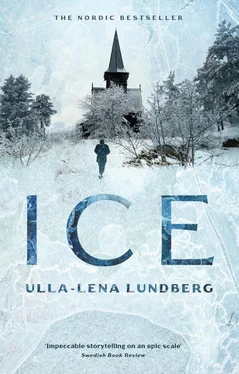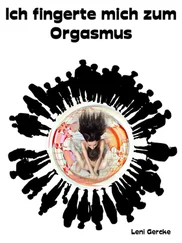On the Örlands, it seems natural to avoid a petty focus on people’s shortcomings, seductively easy at times to be indulgent towards wickedness that can’t be ignored. The free-spoken Örlanders open the box a bit and out slips something about tyrannical husbands, swindlers, and adulterers, and, secondhand and only as a rumour, and in whispers, a hint about rape and bestiality. He can talk seriously with a sinner who seeks him out, he can try to help a victim, but the public condemnation that Adele expects of him is beyond his capacity. “Let him who is without sin cast the first stone” is a fine exhortation even today, but it is hardly an adequate answer when considering the plight of those who’ve been subjected to an outrage. So what kind of priest is he to be? An attentive friend, always ready to talk and listen. But is he to render himself half blind and deaf in the process? Maybe so. And the alternative? The path to salvation is not as straightforward as Adele wants him to paint it.
THEIR THIRD WINTER. Petter has lived through every kind of weather out here on the Örlands and moves easily on land and water across his parish. The darkness is not completely dark. Because the islands are not covered with forest, the land lies open to the sky. Starlight and moonlight can reach it, or the gliding streak of light between sky and sea. “Out here we’re always in touch with heaven!” he says to people who ask if he’s not afraid of getting lost in the dark. He feels strongly that just because the church lies at one edge of the parish, its priest must not use that fact as an excuse for withdrawing during the winter months. As pastor, he must live with his congregation, and when do they show a greater openness to the church’s message than during the dreary winter months, when the wind whines among the scattered houses, and the meagre flames of the oil lamps flicker?
Mona is happy that this is the last winter he’ll have to go out on the ice or in a boat in full storm. The work on the bridge has progressed, if not far enough then at least satisfactorily. All the work is being done by volunteers, so they can’t insist on regular hours, just be grateful when some fellow appears with a horse and sledge. Petter has put in countless days of labour, hauling, pulling, carrying, hammering and nailing, and, most of all, keeping everyone in in good spirits. When he gets home, he’s frozen stiff and exhausted, for his cheer-spreading and bridge-building require a kind of mental energy that takes its toll.
It’s cold, wet work, exposed to the weather, and no one likes it. That it gets done at all is proof, according to Adele, of the priest’s unusual ability to lead and inspire. If anyone complains, she snorts loudly and points out that the bridge is not being built for the benefit of the pastor’s family but in order to make it easier for the whole congregation to get to church! But it will soon be done, and with the bridge in place, next winter will be a piece of cake, and in the spring he’s going to do something about that motorboat as well.
He is happy and full of faith in the future, and Mona, who never stops working, has stopped worrying and listening for him as much as she used to do in previous winters when he came home late. You can’t blame a wife for having confidence in her husband and for accepting the fact that he lets people stand and talk to him for far too long so he’s never on time. She simply has to believe that he’ll finally get home. Sometimes so late that she has to fight to stay awake. She doesn’t want to miss having tea with him and talking over the events of the evening before they collapse into bed.
It has been a winter without dependable ice. The post comes rarely, and then only on the Aranda , a ship that can break thin ice. Post-Anton has overexerted himself and torn open an old hernia. He’s had an operation in Godby, where he’s in hospital for a second week. Without the Aranda , there would have been no post at all. Now in early February there’s been a real cold snap, and there is hope that the ice will finally freeze hard. And then just as the weather changes, there are suddenly northern lights.
They’re the first northern lights Petter has ever seen. The family is long since in bed. He blows out the lamp in his office, hardly able to keep his eyes open. But he notices that there is something odd about the light outside, which flames up such that he thinks for a moment something is on fire. But it’s too green, and when he looks out, he sees that the whole sky is billowing. Enormous swatches of greenish light are whirling around in the sky. The northern lights—the actual aurora borealis here on the Örlands! He rushes into the bedroom. Mona is asleep, the girls are asleep. The room is dark, but the northern lights are streaming on the window shades. “Mona!” he says. “Wake up! You have to see this.”
She wakes up with a start and sits bolt upright in bed. “What is it?”
“The northern lights. It’s unbelievable. Get dressed and we’ll go out on the steps and look.”
“Can’t we see just as well through the window?”
“Yes. But it’s completely different when you’re outdoors.”
“The window will be fine for me. Don’t stay out too long and get cold.”
They rarely share each other’s experiences, and now that they can, she doesn’t want to. He wakes Sanna instead, lifts her up in her quilt although Mona hisses indignantly, “For goodness’ sake, let the girls sleep! What do the northern lights mean to them? Nothing.”
But Sanna has awakened in his arms. “Papa!” she says, and knows immediately where she is. “Do you want to come outside and look at the northern lights with me?” he asks. “It’s a fantastic phenomenon in the sky that most people never get to see. Come, sweetheart.” He wraps her quilt around her and carries her like a child, his big girl. “We’ll let Lillus sleep,” he says. “She’s too little to understand what she’s seeing.”
Despite Mama’s protests in the background, they go out, closing the door behind them so as not to let out the heat, and stand silently on the steps. The whole world is aflame in green and white. “It’s a kind of optical phenomenon that has to do with temperature, moisture in the air, reflected light, stuff like that,” he says. “I can’t explain it exactly, I have to find out, but the important thing is that we’re seeing it and will always remember how it looked. It’s one of the wonders of nature.”
“Yes,” Sanna says. If she wasn’t sitting on Papa’s arm, she’d be afraid. The light tumbling above them doesn’t reach the ground, which is pitch-black. It doesn’t light up anything on earth, it’s only the sky that flames and seethes, a huge, cold, burning radiance. But more important than the view is Papa. The warmth in his enthusiastic body, which vibrates when he talks, the feeling of being huddled up so close. The cold air on her back, his warm chest in front, her cheek against his. That they’re out on their own, without Mama and Lillus. Just her, his confidante and assistant in his study of the northern lights.
He himself feels Sanna’s involvement intensely, the firm body under the quilt, the wakeful intelligence in this attentive and concentrated little figure. He feels the grace and joy of this living child especially strongly today, against the background of the sorrow afflicting the Örlands at the moment. The little eight-year-old who was sent to Åbo with a burst appendix several days ago has died of peritonitis. Now once again everyone notes how defenceless life has become since Doctor Gyllen’s departure. He will conduct her burial service once they’ve brought her home and then speak to her memory at a prayer meeting he intends to hold in the west villages. His thoughts are already occupied with what he will say, and Sanna, alive in his arms, makes him think of how he would not be able to bear her loss, while the parents of the little eight-year-old have no choice but to bear their own.
Читать дальше












